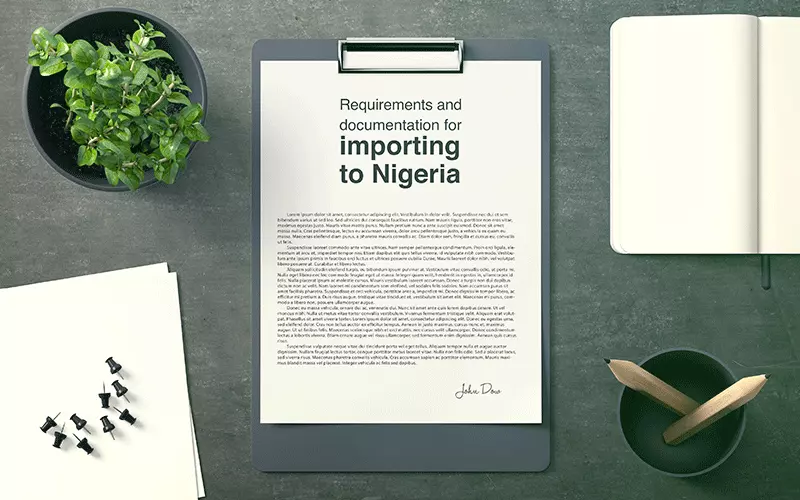Importing to Nigeria involves several steps. Before doing so, the importer must follow some steps. Having a Certificate of Incorporation/Registration in Nigeria is a must for the importer before shipping. A Tax Identification Number (TIN Number) is allotted upon the successful submission of a valid e-mail address along with proof of tax payments presented to the Federal Inland Revenue Service (FIRS). As the Authorised Dealer Bank, a bank of your choice in Nigeria is the next must that needs to be taken into account. The Bank is responsible for the processing of Form M/PAAR and acting as a middleman between the importer, the Nigeria Customs Service (NCS), and other agencies. The next step is getting ready to clear the goods through Customs. Any regulated items must be accompanied by his Regulatory Certification, for example, the PC.

Requirements and documentation for importing to Nigeria
Imports are now subject to destination inspection in Nigeria instead of pre-shipment inspections. As a result of this policy, all imports enter Nigeria for inspection. Consequently, clearance times are significantly increased. Despite spending several millions of dollars on scanners, GON (Government Of Nigeria) rarely uses those scanners, and they are often in disrepair.
Here is a list of documents an importer needs to submit in order to import to Nigeria:
- Product certificate
- Single goods declaration
- A bill of lading
- Commercial invoice exit note
- Packing list
It was also mandatory for the importer to submit a combined certificate value and origin (CCVO). A reminder that in April 2017, the Central Bank of Nigeria (CBN) updated its trade transaction guidelines in accordance with international trading procedures and stakeholders’ recommendations. According to the revision, processing time should not exceed 48 hours from the receipt of the application.

How to import to Nigeria step by step
1. Purchasing Products
When you have selected your products, you need to find out where you can purchase them. Part of the fun is looking for sellers. Don’t hesitate to travel and explore if you’re in a position to do so!
2. realizing the basics
Having some understanding of import and export is a necessity at least. Be careful not to buy products in the hope that they will sell. Lost money and time in addition to increased stress for yourself will be the results.
3. Courses
In case you still believe that international trade is a good idea, it is recommended to take some courses. Import-export courses help you in many cases and give you a wider perspective on this business. It even may save you from some troubles and challenges. It may guide you through some predicted challenges.

What to import to Nigeria
Imports from Nigeria are expected to gain ground in 2021 and beyond, thanks to the relatively untapped UK market. As of 2019, the growth of Nigerian trade was 15.49 percent, compared with the global growth of 3.5 percent. The value of Nigerian merchandise exports totaled $53 billion. Improving your negotiation skills can lead to some great deals. Here is a list of products that can be very successful in importing:
- Cocoa
- Ginger, garlic, nuts
- Textile and Garments
- Palm Kernel oil
- Cosmetics and Soaps
Conclusion
Nigeria is a country that has some special regulations which all exporters need to be informed of. In order to have a good trading business with Nigeria, you have to be aware of all the aspects of this job, what documents they require, what the tips are, and what the challenges are. Otherwise, you will not become successful as you wished.
